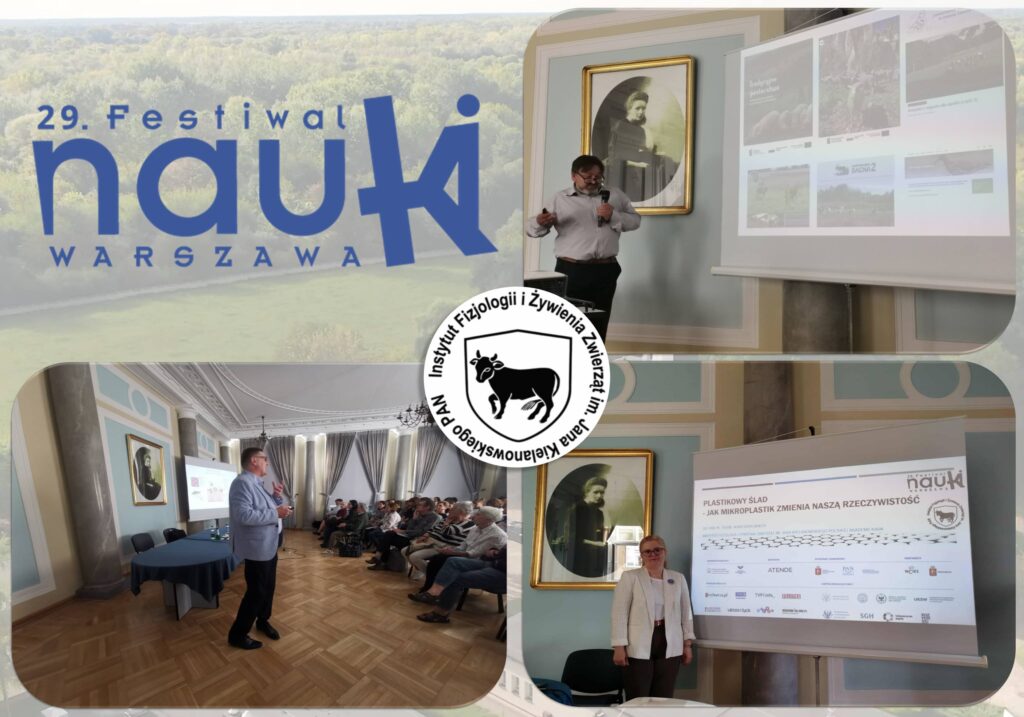
The Kielanowski Institute of Animal Physiology and Nutrition, Polish Academy of Sciences, continuing the long-standing tradition, also in 2025
took an active part in XXIX Science Festival in Warsaw.
On September 23, 2025, within the walls of the Staszic Palace at 72 Nowy Świat Street, three festival lectures prepared by the scientists from our Institute took place. The topics concerned important and current issues in the field of biology, ecology and public health, and each of them was met with great interest.
The first lecture ‘The mysterious world of oral cavity microbiota – feed and bacteria dependence’ was prepared by Paweł Kowalczyk, PhD, DSc. He presented the complex world of the human oral microflora – both beneficial commensal bacteria and pathogens. The particular attention was paid to “Sokransky complexes”, i.e. groups of microorganisms responsible for, among others, the development of caries and periodontal diseases. The importance of microbiological balance and the consequences of its disruption for human health were also presented.
Next, Grzegorz Bełżecki, PhD, DSc, with a lecture ‘Cow – facts and myths’ tried to objectively look at the controversy surrounding cattle breeding and its impact on the environment. He addressed issues such as methane emissions, the role of ruminants in agricultural ecosystems, and the importance of cattle in maintaining biodiversity and utilizing marginal lands. The presentation prompted reflection on the actual impact of farm animals on climate change and the possibility of reconciling livestock production with the principles of sustainable development
Agnieszka Białek, PhD, DSc, has given the lecture ‘Plastic trace – how moicroplastic changes our reality?’. She discussed in detail the dangers of microplastic pollution associated with its presence in air, water, soil, and food, as well as its impact on human and animal health. The mechanisms of microplastic migration were also discussed, along with the latest findings indicating its presence i.a, in the bloodstream and breast milk. Particular attention was paid to the impact of microplastic on the human digestive, immune, and hormonal systems.
All three lectures ended with lively discussions and so confirmed the importance of sharing scientific knowledge with a wide audience. The Institute’s participation in XXIX Science Festival is another step toward building an well-informed society open to science.
This year’s Science Festival in our Institute was supervised by Patrycja Młotkowska, DSc, Eng, and Bartosz Przybył, DSc.